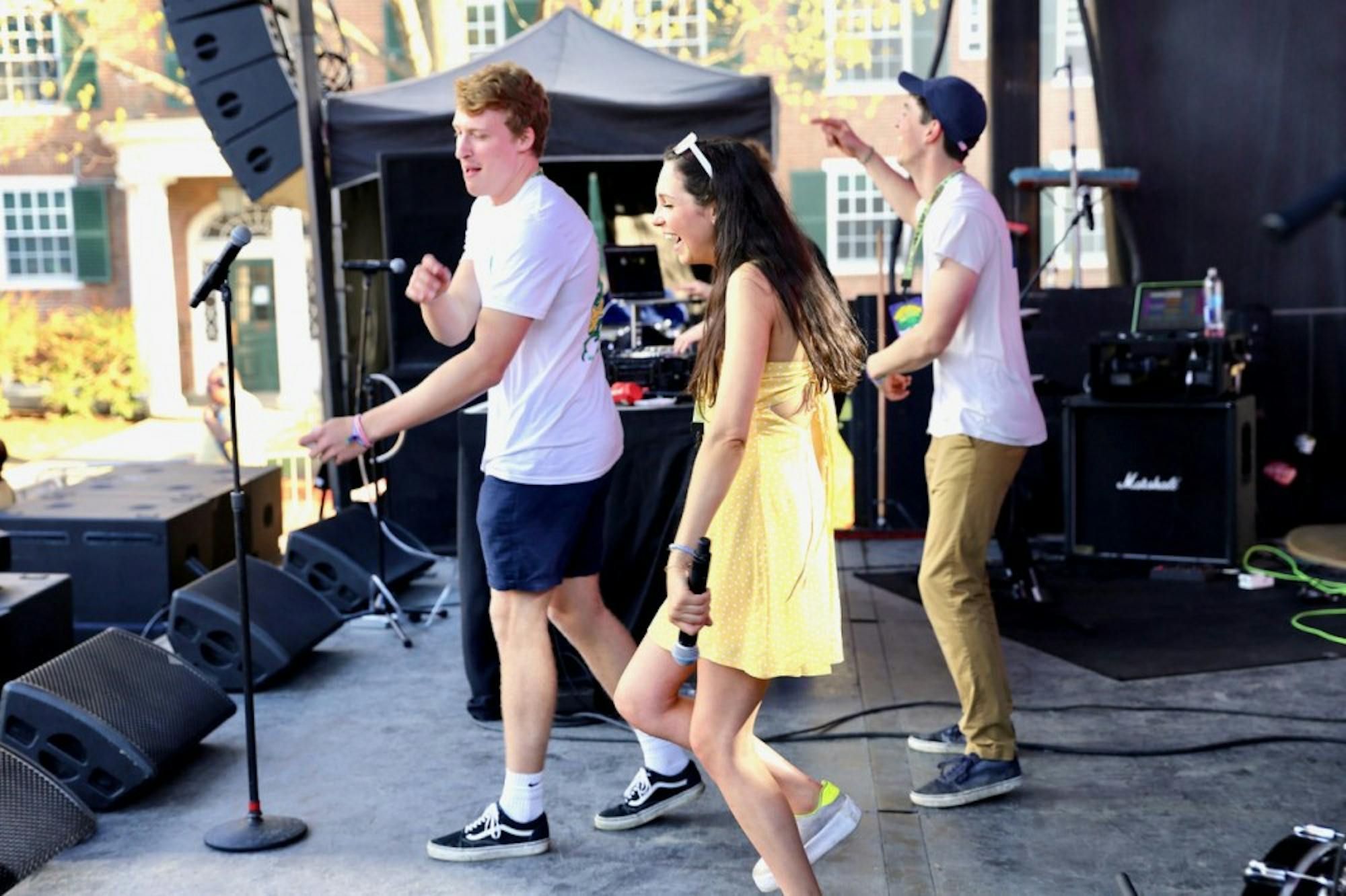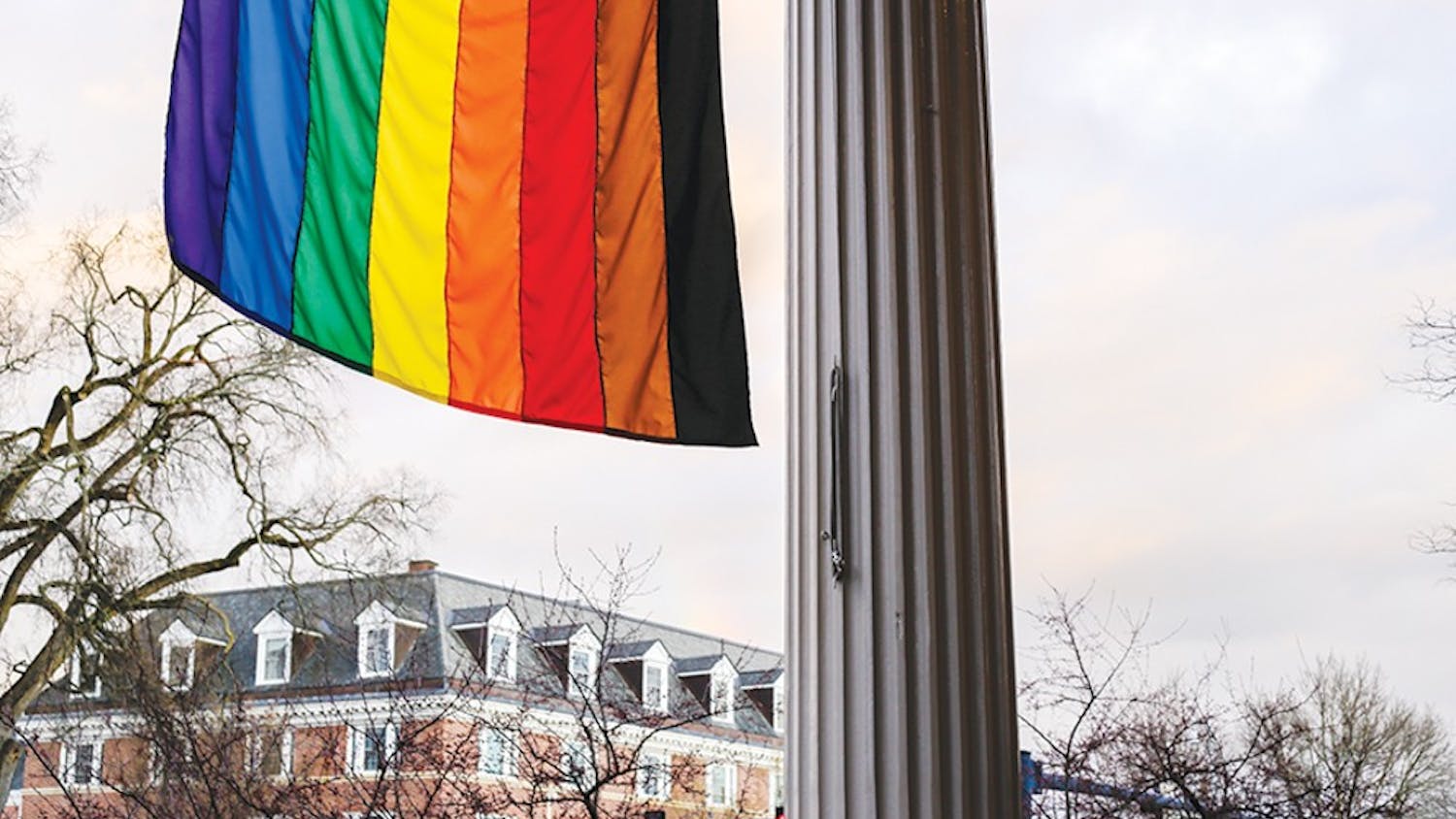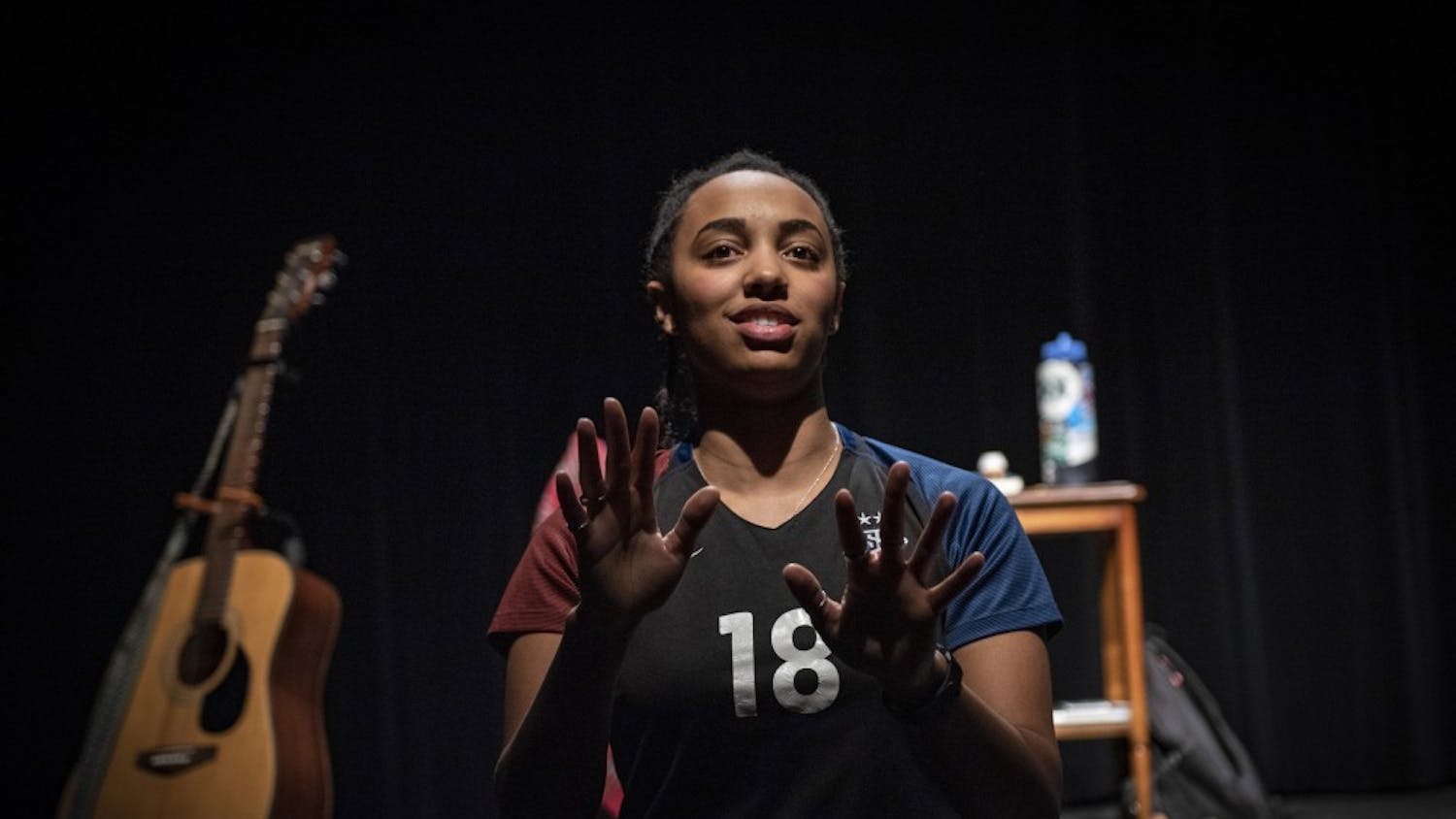Music is the art of collaboration, and no one knows this better than Lila McKenna ’20, who started working with the musical duo Nextlife this past fall. Consisting of Max Fuster ’21 and Henry Phipps ’21, Nextlife formed during Fuster and Phipps’ freshman fall when the pair met and bonded over their shared love for music. Their song “Be Better,” featuring McKenna, reached 100,000 listeners on Spotify since it was released last year. The trio also recently released their new single “Glide” on all major musical platforms. Since their collaboration, the trio said that they have challenged each other as artists and have created music that resonates with listeners.
McKenna encountered Nextlife through PJ O’Sullivan ’19, the founder of Dartmouth student DJ group Booth. O’Sullivan, who became friends with Phipps and Fuster and invited them to join Booth, said that he admired Nextlife as a fresh new musical group.
“Nextlife has the qualities of pop dance that students at Dartmouth know and love from acts like the Chainsmokers or Lost Kings, but they also bring a production and songwriting edge that pushes some boundaries more along the lines of artists like Weathin or Louis the Child who are known in dance music to be pop-sympathetic but riskier,” O’Sullivan said.
O’Sullivan booked recording space for both Nextlife and McKenna and said that he saw the potential for them to collaborate. McKenna brings a new element to Nextlife’s music with her more positive energy, he said. While Nextlife’s music may be less accessible on its own, O’Sullivan found that McKenn made their song warmer and into something that people could listen to over and over.
McKenna, who is also a member of the Decibelles a capella group, said she encourages anyone who is interested in making music to reach out to other musicians on campus.
“Just reach out to people who are in your acapella group, or if you have a friend in an a capella group, or know anyone in any music group,” she said. “People are so willing to accept any talent you can bring to the table.”
Creating “Be Better” was a very organic process. Fuster and Phipps said they first came up with the original demo during a jam session, when they were playing around with a ukulele. They proceed to show the demo to McKenna, who started writing lyrics and recording vocals. Phipps said that the best way to make music was to not to put too much pressure on themselves and to have fun. He said that going into a studio with the intention of making good music was often more frustrating than rewarding; having a good time in the studio sometimes led to better ideas.
Music professor Sang Wook Nam helped Nextlife master “Better Me.” Nam taught Fuster and Phipps in his course MUS 28, “Sonic Space and Form,” during the winter term. According to Nam, Fuster and Phipps learned how to be objective by editing other people’s music, as well as how to be objective about what worked in their own music. Nam said that Fuster and Phipps brought different strengths to the table.
“[Phipps] is very good at making the melody line [have a hook] and [feel] poppy, which draws people’s attention,” Nam said. “I see him as a very melodic composer. [Fuster] is really good at maneuvering sound and laying out the musical elements over the melody that [Phipps] wrote. It makes for a really great collaboration.”
Nam said that Dartmouth students might feel discouraged from pursuing music due to outside expectations and peer pressure to do something else.
“In order make the decision to go a different route that many don’t usually go down, it takes passion rather than trying to calculate what you will get from your time investment.” Nam said. “I really admire the energy and passion and excitement from my students who have decided to go down the music route.”
Nextlife and McKenna have found that they can overcome these potential challenges by connecting with other students. Fuster said that the collaborative atmosphere at Dartmouth has had a huge impact on Nextlife’s artistic growth.
“If the environment at Dartmouth wasn’t the way it is, I don’t think people would really be hearing our music, and it would just be something that is very insular,” Fuster said. “Dartmouth has allowed us not only to amplify our audience but also to amplify our own skills, because it is a very collaborative place to be in to work on music.”




